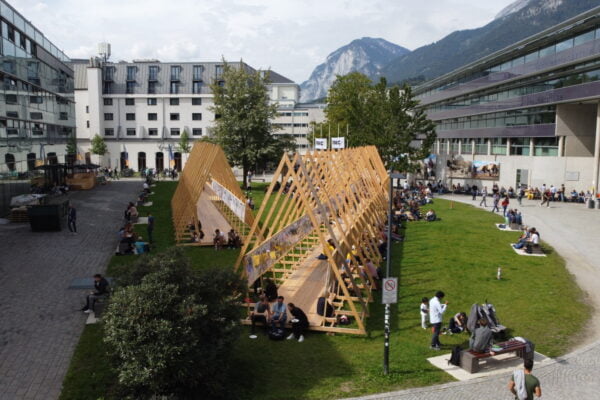
NAME:
SOWI - Garden
BUILDING:
SOWI
FLOOR:
0
TYPE:
Garden
CAPACITY:
2000
ACCESS:
Public Access
EQUIPMENT:
---
In response to the recognition of “wicked problems” (Ritter and Webber, 1973), the need to mobilize stakeholders other than scientific experts has become increasingly apparent, in order to support decision-making and adaptation. These hybrid processes between science and society, described as transdisciplinary research (Pachoud and al., 2022), have gained in visibility, supported by calls for projects. In this transdisciplinarity, the challenge is to engage “an iterative and collaborative process involving various types of expertise, knowledge and actors to produce context-specific knowledge and solutions for a sustainable future” (Norström et al., 2021). The bibliometric review carried out by Gerlak et al (2023) confirms this trend. It also highlights the added value of these stakeholder commitments which ensure that the specificity of territorial contexts is better taken into account, and of the co-production of knowledge, which helps to define an appropriate public action. In this way, non-academic stakeholders can be involved at different stages of the research process: research design, production of science throughout the process, dissemination and co-evaluation of results. However, behind the term transdisciplinary research, there is considerable variety regarding the nature and modalities of stakeholder participation (Djemontin and Meadow 2018). Criticisms (Turnhout et al., 2020) have emerged, focusing on the observation that outcomes often fall short of stated objectives and that there are significant power asymmetries between actors. This calls for reflexive, long-term monitoring (Vincent et al., 2018) of the ways in which these transdisciplinary approaches engage and produce knowledge. This is particularly relevant when we look at transitions in mountain areas (especially winter sports resorts) in the context of climate change. Such transitions, more or less transformative, bring together a diversity of actors in a highly uncertain context. Relying on the analytical grids of Gerlak and al. (2023) and Bowma and al. (2022), we will analyze our transdisciplinary approach at the mountain resort St Pierre-de-Chartreuse. This feedback will address i) the nature and evolution over time of the commitment of political and socio-professional stakeholders ii) the ability to tackle new issues alongside tourism, notably habitability, and iii) the transformative capacity of this collaborative work.
